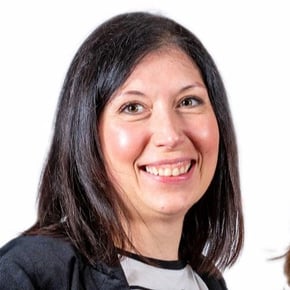When I started taking piano lessons at the age of seven, I had no idea that I’d still be playing 21 years later, much less that I’d be on the other side of that equation too, as a teacher myself. When I went through a rough musical patch in middle school, I had no idea that I’d be infinitely thankful for my mom keeping me in lessons and encouraging me to continue to practice. And when I started to play pieces involving piano and other instruments or voices around that same time, I had no idea that would someday be the focus of the master’s degree I earned.
A collaborative pianist, for those of you unaware, is what I like to call the “politically correct accompanist.” I say that not to poke fun, but to acknowledge that both “accompanist” and “collaborative pianist” (I frankly prefer just “pianist”) are professional names to which I’ll answer. I even once had a pay stub that read “accompianist,” which was a strangely insightful neologistic typo. It’s the musical world’s way of attempting to alter perception through language: “accompanist” connotes subservience; “collaborator” connotes equality. “Accompanist” implies that the one behind the huge behemoth of an instrument is the follower and the one out front is the leader, the one who really matters. “Collaborative pianist” attempts to put the two (or more) on equal footing. And frankly, there are situations when I feel very strongly that I’m an accompanist and others where I’m collaborating in the truest musical sense of the word.
This all really began when I was in high school. One of my good friends was a tuba player, and she and I both were leaning towards pursuing music majors in college (which we both ultimately did). Consequently, she had to put together an audition recording, and one of the pieces had a piano part. I’d played a piece or two with her before for competitions, but a recording? That’s a big deal! High pressure! So, we put the Haddad Suite for Tuba together, spent a patient afternoon with a minidisc recorder and her tuba teacher, and had a really great time doing so. We learned to figure out how to listen to one another for cues, how to wordlessly negotiate a ritardando or accelerando, how to gauge one’s volume based on the other’s volume and the room. The list goes on. I discovered that, hey, this is fun! I get to do something I already enjoy AND be around other people? What luck!
My undergraduate career was primarily focused on solo repertoire, but as early as my freshman year, I began playing for others – singers, instrumentalists, choirs. Through the guidance of some very dear and caring professors, I gained more and more experience as a collaborator. I started to discover the beauty of art song – music written JUST for piano and voice, with texts to explore (a huge plus for one who was torn between studying English and Music) and singers with whom to share opinions and discuss ideas. And other languages to study and pronounce and translate, to boot (also a huge plus for one who has a Spanish minor and has a yen for learning all things linguistic)! As you can imagine, one thing led to another, and I ended up deciding to pursue this whole collaborative thing after leaving undergrad.
And I don’t regret that decision one bit. Collaborating with others has taught me a great deal as a musician and as a human being, too. The intuition required to know when to move a piece along so the singer doesn’t run out of breath is not dissimilar to the intuition required for perceiving when a class is starting to wander in their attention and it’s time to move things along as the teacher. Collaborating helps you learn how to phrase difficult things diplomatically in communication. It forces a natural introvert (like me) to buck up and meet new people on a very regular basis. And later, it pushes the introversion even further into the background as the performance rolls around and there’s either an audience or a panel of adjudicators in the room with you. In one of my graduate classes, we had to give a presentation on a non-musical collaboration, and it was fascinating to explore the multitude of ways in which seemingly unrelated fields – architecture and biology, to name a couple – share a skill set and common experiences with those of the musical collaborator.
I once read an article about a prestigious piano competition, and the quote that’s always stuck with me was from one of the competitors who lamented the fact that, as a solo pianist, one must spend many hours alone with just a piano. As rewarding as it may feel at the end of a successful solo practice session, how much more rewarding would it be to then share that sense with someone else? Whether that someone is a singer, a trio, a choir, or even another pianist, there’s really something to be said for the exponential equation of several musicians added together to produce a far greater whole than the parts alone.


COMMENTS